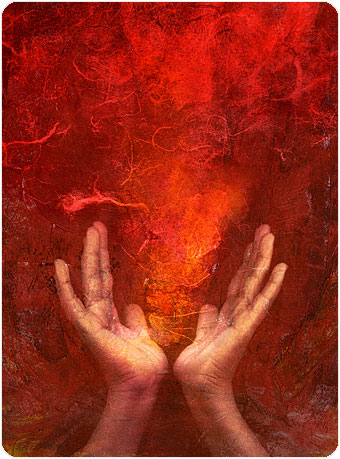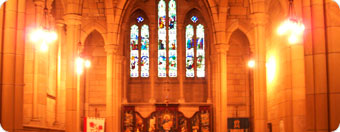 Sitting in the fire
Sitting in the fire
I don’t need to tell you that those of us who have no training in the law think that we are legal experts. I don’t need to tell you this because news reports inform you of that reality on a daily basis. Our expert commentary lets you know when you have got it wrong; particularly when you have not ‘punished’ someone sufficiently or when those tried by media or gossip and found guilty walk free from the courts. The same expertise seeks to pressurize the legislature to limit your choices, ensuring that you get sentencing correct through the use of mandatory sentencing or ‘three-strikes and you’re out’ regimes.
The thing I admire about so many in the legal profession is that you do not respond, to what are often provocative taunts, in reactionary or inflammatory ways. You do not enter into tabloid-style sledging, nor do you respond in kind to the emotional outbursts of relatives whose thirst for vengeance can never be sated, or to the rants of those who desire self-justification in the face of facts. It must be tempting to respond to such pressure with attempts at ‘spin’ similar to those that fill our evening news. Rather your responses, when appropriate, are measured and to me seem free of self-justification.
Arnold Mindell1 refers to this method of dealing with conflict as ‘sitting in the fire’. He commends it as a leadership style that is transformative. Sitting in the fire involves allowing those who feel aggrieved to have their say without seeking to shut down or dismiss their feelings, while at the same time not allowing oneself to be blown around with each change in wind direction. ‘Sitting in the fire’ involves recognising the energy in, and reality of, conflict and difference, and responding in ways that seek to harness that energy.
Mindell’s view finds some resonance with Auden’s confronting poem, The Hidden Law. If you are familiar with his work you will know that Auden often points us to the starkness of life: Life is life; Joy is joy; Love is love; Sex is sex; Loss is loss. The Hidden Law is a short statement which calls on us to recognise how things are; to be real.
Unlike so many who point us to the starkness of life, Auden’s poetry also points us beyond despair and fatalism: for him joy is still joy and love really is love. In this way Auden reminds me of the work of R S Thomas, the Welsh priest and poet, who whilst recognising the incredible harshness of life in the welsh countryside, was also able to recognise the divine in the midst of that harsh life; even if at times the divine was experienced as ‘a great absence that is like a presence……… [like] a room I enter from which someone has just gone’.2
Auden’s call to be real, to acknowledge the Hidden Law, allows us to remind ourselves that there are deep forces which can be unleashed if we choose to play with fire rather than sit in it; that entering into the tabloid fray can consume good people for no gain; and fragile structures, such as the rule of law and parliamentary democracy, can be eroded and destroyed quite easily. Like the stewards called by the church to protect an image of God as a gentle lover, you too are called to be custodians of something fragile and precious. In recent times scandal has undermined some of the church’s reputation, threatening to make a mockery of the image we are called to safe-guard. Similarly scandals involving politicians have eroded, and the daily spin game reduced, their credibility to an extent which many seem to have no cognisance. So well done you, and well done those politicians and church leaders, who have not become victim to this dynamic.
Choosing to sit in the fire rather than playing with it bears other fruit as well. Choosing not to enter the tabloid-style dynamic can allow one, through the stillness of sitting, to begin to recognise that beyond the hidden law there is an even deeper reality. R S Thomas recognised the presence of the divine while waiting quietly in empty churches as the folk consumed by the harshness of life walked on by. Auden, on the other hand, recognised that which is beyond the hidden law by giving himself over to living. His poetry reflects a rather pornographic commitment to sex, as well as a sublime honouring of loving and a harsh naming of the disingenuous and the farcical when they seek to pass themselves off as respectability.
Both poets recognised that beyond the hidden law there is that which triggered Isaiah’s vision of a world transformed, and which enlivened Jesus, who through his manifesto statement, bore witness to the idea that at the heart of the universe there is a principle which yearns for liberation, justice and peace. This greater law, beyond the hidden law of ‘Nature red in tooth and claw’3, also calls us beyond the tabloid dynamic.
The recognition of this brings us full circle, for it is that same principle and vision which encourages Arnold Mindell to commend the art of ‘sitting in the fire’.
As a final observation I want to honour one way in which all of this comes together; how sitting is bearing good fruit which reflects a recognition of that which is beyond the Hidden Law. I am deeply grateful for the sense which groups, such as Australian Lawyers for Human Rights, are bringing to the debate about the treatment of boat people which is currently engaging us as a nation. Such groups invite us to move beyond responses that are formed out of ignorance or produced by fear, towards a response that is less emotive; one that both considers the law, and which also strives to celebrate and honour our shared humanity and to love our neighbour as ourself.
May the deeper vision of life sustain you through this Law year and enliven your practice and your judgment.
+Amen
© Peter Catt
Footnotes
- Arnold Mindell. Sitting in the Fire: Large Group Transformation Using Conflict and Diversity, Lao Tse Press, 1995
- The Absence, in R S Thomas, Collected Poems 1945-1990, Phoenix, 1993, p. 361
- From In Memoriam by Alfred, Lord Tennyson.
The Hidden Law
by
W.H. Auden
The Hidden Law does not deny Our laws of probability, But takes the atom and the star And human beings as they are, And answers nothing when we lie. It is the only reason why No government can codify, And verbal definitions mar The Hidden Law. Its utter patience will not try To stop us if we want to die: When we escape It in a car, When we forget It in a bar, These are the ways we’re punished by The Hidden Law.




 Sitting in the fire
Sitting in the fire